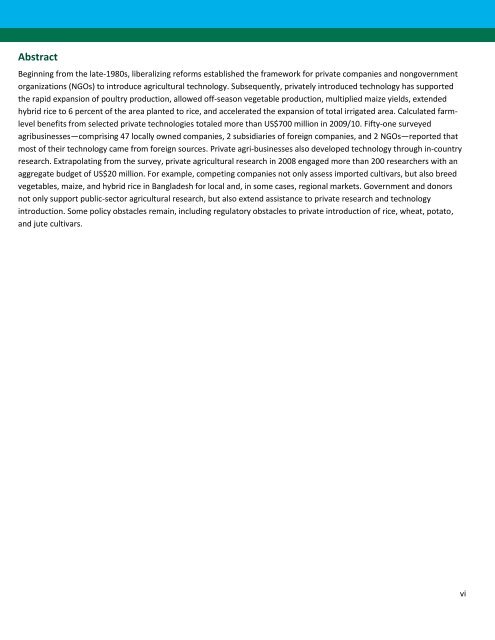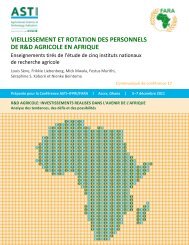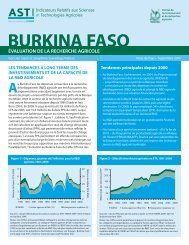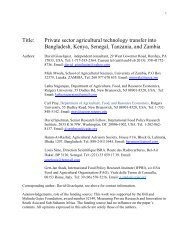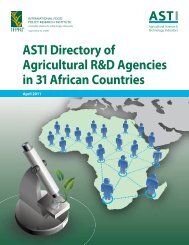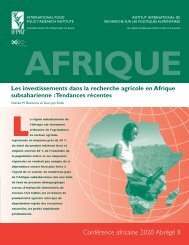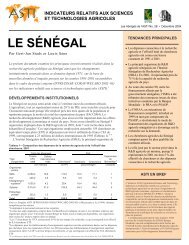Bangladesh country report - ASTI - cgiar
Bangladesh country report - ASTI - cgiar
Bangladesh country report - ASTI - cgiar
Create successful ePaper yourself
Turn your PDF publications into a flip-book with our unique Google optimized e-Paper software.
Abstract<br />
Beginning from the late-1980s, liberalizing reforms established the framework for private companies and nongovernment<br />
organizations (NGOs) to introduce agricultural technology. Subsequently, privately introduced technology has supported<br />
the rapid expansion of poultry production, allowed off-season vegetable production, multiplied maize yields, extended<br />
hybrid rice to 6 percent of the area planted to rice, and accelerated the expansion of total irrigated area. Calculated farmlevel<br />
benefits from selected private technologies totaled more than US$700 million in 2009/10. Fifty-one surveyed<br />
agribusinesses—comprising 47 locally owned companies, 2 subsidiaries of foreign companies, and 2 NGOs—<strong>report</strong>ed that<br />
most of their technology came from foreign sources. Private agri-businesses also developed technology through in-<strong>country</strong><br />
research. Extrapolating from the survey, private agricultural research in 2008 engaged more than 200 researchers with an<br />
aggregate budget of US$20 million. For example, competing companies not only assess imported cultivars, but also breed<br />
vegetables, maize, and hybrid rice in <strong>Bangladesh</strong> for local and, in some cases, regional markets. Government and donors<br />
not only support public-sector agricultural research, but also extend assistance to private research and technology<br />
introduction. Some policy obstacles remain, including regulatory obstacles to private introduction of rice, wheat, potato,<br />
and jute cultivars.<br />
vi


